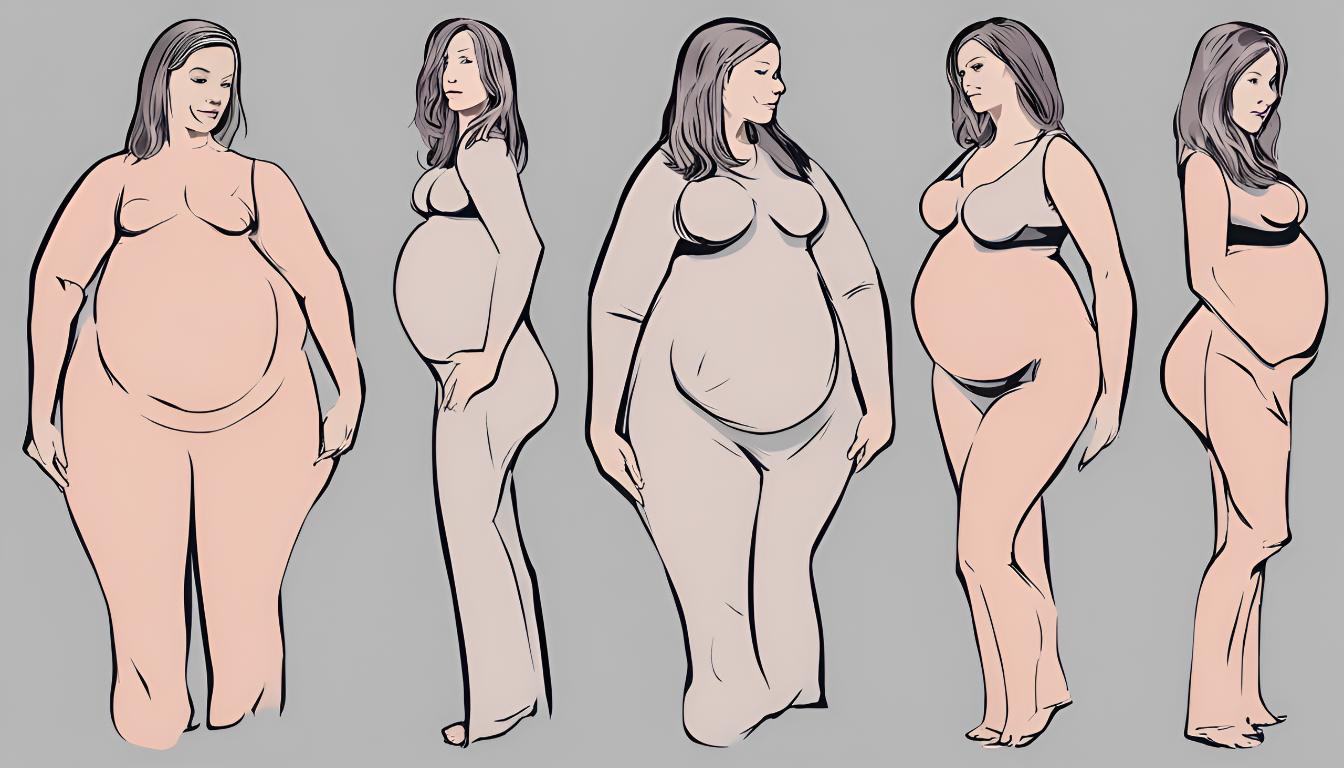Many first-time moms can’t wait to put on maternity clothes and show off their growing bellies. In reality, many women gain only 2-3 kilograms in the first trimester and their bellies do not become visible until 5-6 months. The changes in your body that you can follow during this period can be summarized as follows:
What are the Changes in the Body in the First 3 Months of Pregnancy?
During the first trimester of pregnancy, there will be changes in your body that you will clearly notice. It is possible to summarize some of them as follows.
1.Morning sickness during pregnancy
Morning sickness is usually one of the first symptoms of your pregnancy and starts in the first trimester. Nausea is the first reaction to the increased hormones in your body. Mothers who experience morning sickness may vomit with the nausea, butthe term“morning sickness” can be misleading, it can affect during the day or at night. It is usually not harmful to mom and baby and the good news is that it gradually decreases by the end of the first trimester. Try eating in small snacks and meals rather than three large meals, increasing water consumption. If you have extreme nausea, you can consult your doctor to find out about safe treatment methods to ease this process.
2.Feeling of Fatigue during Pregnancy
Mothers may feel tired during thefirst trimester and this is normal in the process. Nutrition is very important during pregnancy so a healthy diet and regular exercise or even just a brisk walk can help.
3.Swelling of the breasts during pregnancy
Swollen breasts are the first visible sign of pregnancy. Your breasts may become tender and appear larger due to increased hormones. Make sure you wear a supportive bra that cups your breasts correctly. You may need a bra that is a larger size than you usually wear. Usinga nipple shield can also help you with this.
4.Dizziness during pregnancy
Many pregnant women may experience dizziness or mild headaches as a result of significant changes in their cardiovascular system. Blood vessels dilate, blood volume increases and your heart works harder.
5.Changes in the skin during pregnancy
You may notice that your skin is oilier than usual, you may experience pimples or dry and itchy skin. This is normal. However, if you experience intense itching of the skin over a large area, you should consult your doctor or nurse as this may indicate a rare liver problem called cholest as is of pregnancy. ‘Pregnancy mask‘ (chloasma) is the formation of dark spots on the face and neck in light-skinned women and light spots in dark-skinned women. This occurs in about half of pregnant women. The sun should be avoided as the sun’s rays can worsen this condition. They usually disappear with childbirth.
6.Stretch marks during pregnancy
Whether stretch marks occur and how severe they are depends on the elasticity of your skin. Small tears can occur when the collagen layer of the skin is stretched. Although there is no magic formula to prevent stretch marks, it is best to gain and lose weight more slowly, exercise lightly regularly and eat healthy. After delivery, the color of stretch marks will change from red to pink and eventually turn grayish, making them less visible. You can also take a look at our pregnancy self-care tips page.
7.Teeth and Gums during Pregnancy
As the gums soften during pregnancy, they become more susceptible to infection and bleeding. We recommend you to be under the control of your dentist during and after pregnancy.

